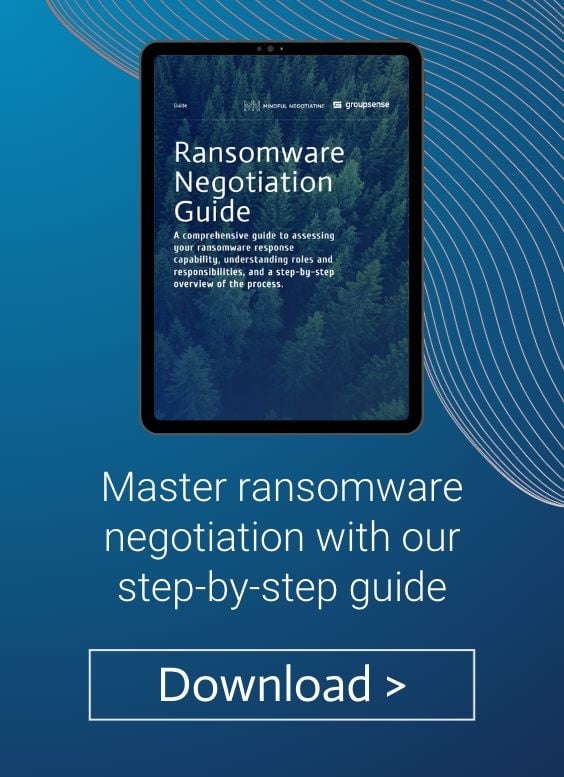With the emergency approval of COVID-19 vaccines, many are (rightfully) starting to see the proverbial light at the end of the tunnel. Although GroupSense is hopeful 2021 will bring health, prosperity, and recovery from the global public health crisis, we are also cognizant of numerous cyber security threats that may derail the mass-vaccination process. Below are five of the many threats GroupSense expects to see as the world moves forward with COVID-19 vaccination efforts.
- Fake vaccines for sale on the dark web: GroupSense observed threat actors peddling supposed COVID-19 vaccines on deep and dark web forums as early as March 2020. We assessed with high confidence then that COVID-19 vaccine offers were scams attempting to capitalize on the uncertainty of an exploding global health crisis. With multiple vaccines approved and being distributed, we anticipate an increase in vaccine scams. We have recently seen reports of threat actors luring victims via email and messaging apps to deliver supposed vaccines, and GroupSense has noticed Telegram is a popular platform for advertising fake vaccines.
- Supply chain threats, including ransomware attack:. The logistical issues of the COVID-19 vaccine distribution have been well documented. Such a complex, high-value target presents threat actors an appealing opportunity with multiple, divergent, and potentially difficult to protect threat surfaces. In November 2020, threat actors attacked cold-storage company Americold. The cyberattack thankfully did not disrupt Americold’s operations but is indicative of the much larger threat facing all levels of the vaccine supply chain. According to GroupSense’s ransomware victim tracking, ransom groups attacked over 50 healthcare and pharmaceutical companies in 2020 alone.
- Doctored or fake vaccination cards:. Operation Warp Speed, the U.S. government’s COVID-19 vaccination effort, will include COVID-19 Vaccination Record Cards with each vaccination kit. The vaccination record cards include personally identifiable information (PII) such as full name, date of birth, patient ID number, and pertinent COVID-19 vaccine information like the vaccine manufacturer, dosage dates, and where the vaccine was administered. There is still no global consensus on which activities will require a COVID-19 immunization record, though signs seem to point to some forms of travel and returning to work, as early frontiers. This will undoubtedly create a market for fraudulent vaccination records. The proliferation of high-quality photos of CDC COVID-19 vaccination records on social media platforms, including PII, QR codes, hospital information, and health care provider signatures, make a threat actor’s job that much easier. The only remaining question is how big the fake COVID-19 immunization card market will be.
- Mobile phishing:. Scammers have exploited the COVID-19 crisis for phishing campaigns from the very beginning of the pandemic. Threat actors have used everything from fake maps depicting the spread of the virus to updates from local health officials to conduct phishing campaigns throughout the pandemic. One report found a 37% increase in mobile phishing attacks -- those leveraging SMS, social media, or other messaging apps -- since the beginning of the pandemic. Threat actors will not stop now that a vaccine has been developed. In fact, local health officials’ vaccination efforts provide yet another vector exploitable by threat actors.
- Mis/disinformation: Vaccine skepticism and anti-vaccination ideology long predate the COVID-19 vaccines. However, COVID-19 vaccination efforts are especially vulnerable to mis/disinformation given worldwide attention, the politically charged focus on distribution, and because multiple actors can benefit from promoting disinformation. We note, for example, that Russia developed a competing vaccine, Sputnik V, and its state-funded media has sought to discredit Western vaccines. In addition, ideologically and financially motivated threat actors are also publishing sensationalized, misleading narratives surrounding the vaccine. We have also observed several influencers, including medical professionals, promoting false information surrounding COVID-19 and vaccinations, further complicating efforts to combat mis/disinformation. The early stages of the COVID-19 vaccine rollout have already been targeted with misinformation about symptoms, side effects, and allergic reactions among the first recipients. GroupSense is already engaged in identifying mis/disinformation about COVID-19 vaccines for its clients.






